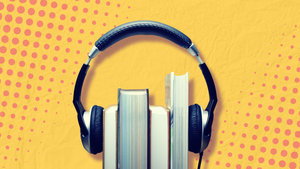Amazon has followed Spotify’s lead in adding audiobooks access to its main music subscription package in the US, UK and Canada. However, unlike Spotify, Amazon won’t be sneakily cutting payments to songwriters in the US by employing the ‘bundling discount’ available in the country’s compulsory licence.
Talks are ongoing regarding how this will actually impact on what royalties writers and music publishers receive from Amazon. But David Israelite, boss of the US National Music Publishers Association, says he is “optimistic” that those negotiations will result in a satisfactory agreement.
He adds, “Amazon has engaged with the music publishing and songwriting industry in a respectful and productive way, unlike Spotify. We expect this new Amazon bundle will not decrease revenue for songwriters”.
Announcing the addition of audiobooks to its music service yesterday, Amazon declared, “Starting today, Amazon Music Unlimited individual plan subscribers, and primary account holders to the family plan, can listen to one audiobook at a time - of any length - per month with their subscription”.
Amazon is already a major player in the audiobooks market via Audible, its existing audiobook subscription service, and its the Audible catalogue that music subscribers will now be able to tap into. Access is limited to one audiobook per month, however, in contrast to Spotify’s cap of fifteen hours of audiobook content per month, Amazon will not time-limit audiobook listening.
In Amazon’s words, users of its music service will have access to “Audible’s unparalleled library of premium audio storytelling content, including a US catalogue of more than 1 million of the most popular and enduring audiobooks in the world”.
For the music industry, whenever non-music content is added to a subscription product that was originally music-only, the key concern is whether or not the publishers of that other content will be sharing in the revenues generated by subscription sales and whether that will impact on what is paid out for music.
When negotiating their licensing deals, music companies have tried to ensure that doesn't happen by anticipating new content types being added and excluding them from the royalty pool.
However, in the US, when it comes to royalties paid to music publishers and songwriters, the total rate paid by the services is set by the Copyright Royalty Board in the compulsory licence covering mechanical rights. That licence includes a discount for bundle subscriptions which provide access to different content types.
When Spotify added audiobooks to its main premium product - giving subscribers access to fifteen hours of audiobook content each month - it reclassified it as a music + audiobooks bundle so that it could qualify for that discount on what it pays to publishers and writers.
That move has been heavily criticised by the music industry and is subject to legal action in the US courts. The legal battle swings on whether or not the audiobooks access added by Spotify has more than “token value”. That is required to qualify for the bundle discount under the compulsory licence.
It’s possibly far easier for Amazon to make the case that its music + audiobooks bundle does represent significant value, as Audible is a long-established platform and has a dominant position in the audiobooks market, with millions of paying subscribers.
However Amazon is apparently not planning to go down the same route as Spotify when it comes to licensing, and is instead trying to negotiate a bespoke private deal with the music publishers to account for the inclusion of audiobooks, rather than relying on the bundling provisions in the compulsory licence.
Which may be an indication that it feels there is a better deal to be done - or a better long term outcome to be reached by engaging directly with the industry.
Amazon’s approach also allows David Israelite to give Spotify another kicking. “Unlike Spotify, Amazon is looking at music creators as business partners and seeking to have a deal in place before the first round of royalty payments”, he continues. “This is in stark contrast to Spotify who is trying to pervert the compulsory license and slash what they pay songwriters”.
As for the consumer, which service is offering the better deal, with Spotify's fifteen hours of audiobooks access per month and Amazon's one audiobook per month? That depends very much on what kinds of books you listen to, though most titles are probably no more than ten hours, meaning Spotify is slightly better value.
Except, because Spotify ultimately added another dollar or pound to the subscription price after introducing audiobooks, which Amazon has not yet done, Amazon is currently better value. Assuming you have any interest in accessing audiobooks via your music service of choice.

